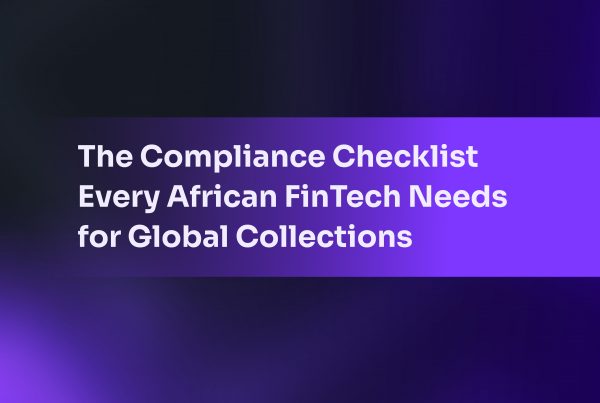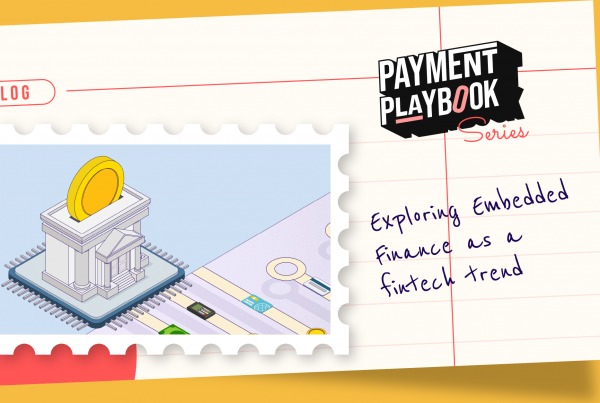Many things happen on the back and front end when a customer completes a transaction and pays for a product or service. For every successful transaction in the payment ecosystem, information passes through from one end to another. That is where the payment gateway comes into play.
The knowledge of the payment gateway and how it works is essential for merchants to understand how the payment ecosystem works.
Definition of payment gateways
A payment gateway is a technology that captures and transfers payment data from the customer card to the payment destination. It ensures that merchants get paid by securely acquiring and validating customer card information before payments in online and offline businesses.
A point-of-sale (POS) terminal is a payment gateway for offline transactions. That physical device collects information from the customer’s card and then securely transmits the information to the merchant and between the merchant and the bank.
The information goes between the cardholder (customer), the merchant operating the business, the card company, the issuing bank (bank of the customer) and the acquiring bank- the merchant’s bank.
Many often wrongly interchange payment gateway and payment processor. Payment gateway and payment processes are not the same; they are both parts of a transaction process. While a payment gateway collects information, a payment processor processes the information between bank accounts.
How does the payment gateway work?
For online payments, these are these five steps;
Step 1: It starts with the customer who wants a product or service; the customer then chooses the product or service and proceeds to the payment page.
Fincra’s payment gateway offers different options for payment pages to merchants.
Merchants can add a checkout button to the website, and when a customer clicks on it, it loads the Fincra payment page from where the customer makes payment. With this option, merchants do not have the burden of storing customers’ card information on their servers.
For another option, a merchant can call an API and then Fincra gives them our checkout link, and then they redirect their customers to that checkout page so that once they make payment, they are redirected back to their website. With this option, merchants do not have to embed a check button on the website.
There’s direct integration where merchants don’t need our checkout payment page. All they need to do is integrate into Fincra’s payment gateway. With this option, the merchants have control over the user experience for customers on their end and are just calling Fincra’s end to facilitate the payment or process flow.
Step 2: The customer enters their credit or debit card information on the checkout page-details include the name of the cardholder, expiration date and Card Verification Value (CVV) Number. This information is securely transmitted to the payment gateway, which encrypts the card details, validates them and sends them to the acquiring bank (merchant’s bank account).
Step 3: The acquiring bank then sends the information to the card company (Mastercard, Visa), who then validates the information before sending the information to the issuing bank.
Step 4. The issuing bank then screens for fraud, validates and authorises the transaction back to the card company and then to the acquiring bank. There are usually two types of information that the issuing bank passes- either decline or a successful payment message.
Step 5. The acquiring bank passes the message to the payment gateway, which then sends the message to the merchant. Settlement happens next if the payment gateway gets a successful message to give to the merchant.
Where does the money go?
For onboarded merchants on Fincra, settlement through the payment gateway go to either a Fincra Wallet or a bank account provided by the merchant.
How to choose the best payment gateway for your business in Nigeria
When selecting a payment gateway for your business, there are several factors to consider.
The top priority should be easy-to-integrate APIs, security of the payment gateway, the level of support, the hosting you prefer, and a payment gateway that enables cross-border and currency collection.
Fincra
Fincra checks all the boxes when looking for a reliable payment gateway for your business.
Integration and support
Fincra’s payment gateway is easy to set up and integrate. Fincra offers 24/7 responsive support for an excellent customer experience. Our fantastic support makes onboarding and approval quicker once a merchant meets all KYC requirements.
Our personalised customer service allows you to communicate directly with our customer service teams in case of issues during your onboarding and transaction processes.
Security
Security is essential when processing payments and businesses in Nigeria should only use providers that are level 1 compliant with the Payment Card Industry Data Security Standard (PCI-DSS). Fincra is PCI-DSS certified with built-in security capabilities in our gateway.
Setting up Fincra
To set up a payment gateway for your website, reach out to our Sales Team or get started yourself.




